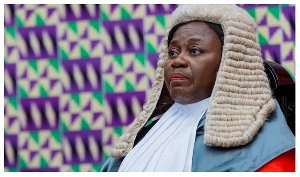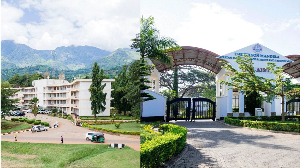Government has reached a staff-level agreement (SLA) with the International Monetary Fund (IMF) on the fourth review of the country’s three-year economic programme under its Extended Credit Facility (ECG), paving the way for a potential disbursement of about US$370million once the IMF Executive Board gives its approval in early July.
The agreement follows two weeks of discussions in Accra between IMF staff led by Mission Chief Stéphane Roudet and Ghanaian authorities, particularly the Ministry of Finance. The successful review is a further step in government’s efforts to restore macroeconomic stability after fiscal slippages and reform delays marred the final quarter of 2024.
Although growth was higher than expected last year – driven largely by a strong performance in the mining and construction sectors – programme implementation faltered in the run-up to December’s elections. Key challenges included a buildup of unpaid obligations, inflation overshooting its target and postponed reforms in critical sectors such as energy and finance.
Since assuming office in January, the new administration has implemented what IMF officials described as “bold measures” to realign the programme with its original objectives. Authorities have enacted a stronger fiscal framework, hiked electricity tariffs and tightened monetary policy to curb inflation and enhance macroeconomic discipline.
“The new authorities have taken bold measures to address policy slippages. This includes adopting a 2025 budget targetting a 1.5 percent of GDP primary surplus and launching audits of payables,” Mr. Roudet said in a statement.
According to preliminary IMF assessments, primary fiscal balance posted a deficit of 3.25 percent of GDP at end-2024 – well off the programmed surplus of 0.5 percent. The fiscal deterioration stemmed largely from unbudgeted expenditures, prompting government to initiate an audit of the payables using both the Auditor General and two international firms. The audit is expected to conclude within eight weeks.
Finance Minister Cassiel Ato Forson described the review process as “the most difficult” yet under the current programme, but expressed optimism about the outcome.
“What started like the most difficult review of the programme has ended successfully,” the minister said during a joint briefing with the IMF. He reiterated government’s commitment to staying the course on fiscal consolidation and structural reforms, despite the challenges.
To strengthen fiscal governance, Ghana has amended its Public Financial Management (PFM) Act to include a fiscal rule targetting a debt-to-GDP ratio of 45 percent by 2035, along with a mandatory annual primary surplus of 1.5 percent of GDP on a commitment basis. Additionally, an independent fiscal council will be established to monitor adherence to these targets.
New procurement rules have also been introduced. Henceforth, all central government procurement must receive prior authorisation from the Finance Minister. Authorities have also announced plans to publish a ‘PFM Commitment Control Compliance League Table’, ranking ministries, departments and agencies by their fiscal discipline.
On the monetary policy front, the Bank of Ghana has raised its benchmark interest rate and is reassessing its liquidity operations in an effort to rein-in inflation. These moves, coupled with fiscal tightening, are expected to drive inflation back within programme bounds in the months ahead.
Despite these recent advances, structural risks persist – particularly in the energy sector.
The minister acknowledged the fiscal burden posed by the sector, but said government has taken steps to address the problem. The resumption of quarterly tariff adjustments and implementation of the Cash Waterfall Mechanism, designed to ensure timely payments to Independent Power Producers, are among the steps being taken.
Other reform milestones include the migration of 549 spending units to the GIFMIS platform ahead of schedule and publication of revenue audit reports by the Electricity Company of Ghana (ECG). He said these achievements demonstrate the administration’s willingness to exceed programme targets.
Ghana’s external position has also strengthened. Strong gold exports, a rebound in oil and rising remittances have contributed to a significant buildup in foreign reserves, far exceeding programme benchmarks. However, programme success will ultimately depend on government’s ability to complete its debt restructuring.
The IMF noted that all parties have now signed a Memorandum of Understanding under the G20 Common Framework and Ghana is working to finalie bilateral agreements with official creditors. Negotiations with commercial creditors are ongoing.
“Ghana remains committed to completing its comprehensive public debt restructuring,” the IMF said, stressing the need for comparability of treatment across creditor groups.
Once the Executive Board approves the review, Ghana will unlock the fifth disbursement under the programme, bringing total receipts from the IMF to US$2.3billion. Forson vowed to personally oversee implementation of all reform commitments needed to secure board approval.
“This marks great progress toward building the Ghana we want,” he said.
The current programme, approved in May 2023, aims to restore debt sustainability, support economic recovery and protect the vulnerable through targetted social spending.
Business News of Wednesday, 16 April 2025
Source: thebftonline.com













